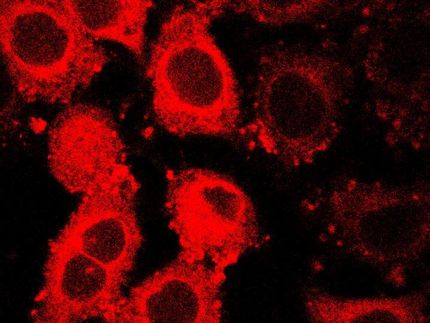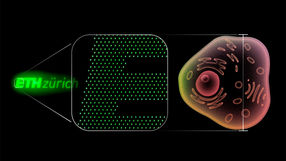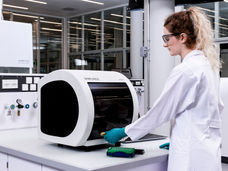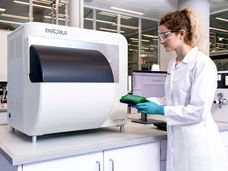Innovative image sensing technology for early diagnosis of diabetes and Alzheimer’s disease
Professor Kazuaki Sawada and Dr. Takigawa of the National Center for Geriatrics and Gerontology and colleagues at Toyohashi University of Technology have established an easy to use, low-cost, rapid, and high sensitivity semiconductor-imaging based medical diagnostic biosensing system for analyzing blood and urine for early diagnosis of ailments including diabetes and Alzheimer’s disease.
The new biosensing technology consists of a semiconductor image sensor ( ‘charge coupled device’ developed by Toyohashi University of Technology) that is sensitive to extremely small changes in electric potential, and microbeads on which antigen-antibody reactions take place. This technology will enable monitoring and diagnosis of diseases for which specific markers are known using very small volumes of blood or urine. Specifically, this technology has detected amiloid beta-peptide, an agent responsible for Alzheimer’s disease.
Contracting a disease leads to expression of proteins specific to the diseases in the blood. This new technology is used for early diagnosis of diseases by using this specific protein as the antigen and a marker that captures the protein as the antibody and checking their antigen-antibody reaction. Conventional protocols used to monitor antibody-antigen reactions employ fluorescent probes and detection of fluorescence with microscopic cameras. This process is time consuming because of the necessity to measure fluorescence from the probes and cannot be used to detect low concentrations of antigens when the fluorescence intensity is too low to detect optically.
With this technology, a antigen-antibody reaction is used as in conventional methods, but fluorescence is not measured. Instead, this method employs a semiconductor image sensor to detect minute changes in electric potential generated during an antigen-antibody reaction.
Implementation of the technology will be tested for daily control of lifestyle diseases such as diabetes and in future the technology will be expanded for the early diagnosis of Alzheimer’s and Parkinson’ diseases.
Original publication
Other news from the department science
These products might interest you

Get the analytics and lab tech industry in your inbox
By submitting this form you agree that LUMITOS AG will send you the newsletter(s) selected above by email. Your data will not be passed on to third parties. Your data will be stored and processed in accordance with our data protection regulations. LUMITOS may contact you by email for the purpose of advertising or market and opinion surveys. You can revoke your consent at any time without giving reasons to LUMITOS AG, Ernst-Augustin-Str. 2, 12489 Berlin, Germany or by e-mail at revoke@lumitos.com with effect for the future. In addition, each email contains a link to unsubscribe from the corresponding newsletter.























































